Ludwig Erhard – the father of the “German economic miracle”
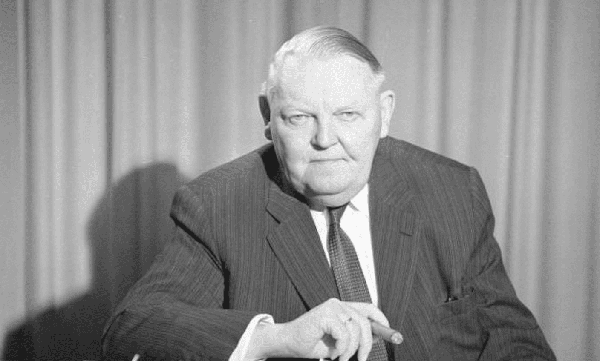
Ludwig Erhard, who almost never went without a cigar, is considered a symbolic figure of the “German economic miracle”
can't be so hopeless
so that strong will and honest work
all the people could not cope with it.
Ludwig Erhard
Introduction
In 1990, on the day of the unification of the two Germanys (Tag der deutschen Einheit), Federal Chancellor Helmut Kohl declared: “We are not only in terms of numbers, but also in other indicators, the strongest country in Europe" And in fact, by the beginning of the last decade of the twentieth century, from a dilapidated war-torn state with a rigid military planned economy, Germany emerged as a leading world power, ranking first in Europe and third in the world in terms of its economic power, after the United States and Japan.
And all this happened while the gross domestic product (GDP) was growing steadily.* and industrial production! And here it is necessary to note that the GDP of this country during the period from 1949 to 1990 grew 4,5 times, and the volume of industrial production - 6,5 times, which is one of the highest regional indicators in the development of the entire modern world economy.

West Germany's share of global industrial production
Here it is necessary to pay special attention to the reasons why in West Germany, unlike other Western European countries, where state building on the basis of socially oriented programs was carried out on the initiative of the socialist parties that came to power after the end of the war, the beginning of broad social transformations was laid by the conservative in its composition and ideological and political orientation of the government.
A little about post-war neoliberalism
The social market economy is a model of socio-economic policy created in order to “on the basis of a competitive economy, combine free initiative with social progress, which is precisely ensured by economic indicators.”
Four years after the collapse of the Third Reich, in the territories located in the American, British and French zones of occupation (Trisonia), a new state was formed - the Federal Republic of Germany, where in its basic law Germany was proclaimed a social state, which was entrusted with the task of forming a fair social order. The concept of a socially oriented state, which is directly associated with the socio-economic system of some highly developed European states, is most widely applied to the Federal Republic of Germany, the experience of post-war reconstruction and development of which is directly related to the Adenauer-Erhard government.
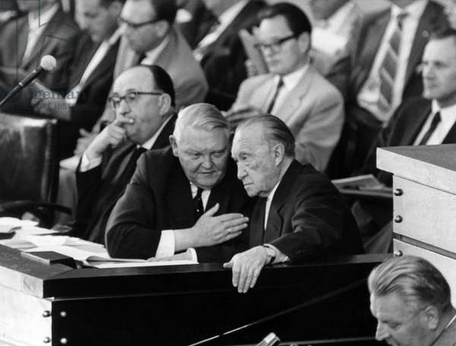
Ludwig Erhard and Konrad Adenauer in the Bundestag
And under the leadership of this government, the young Federal Republic of Germany, recovering from post-war ruins, is becoming one of the places of rapid development of the ideas of neoliberalism*. It is the West German neoliberals who have the recipe for combining the capitalist free market with the principle of fair distribution, which today is the main principle of the social market economy in the Federal Republic.
Note. The social market economy (soziale Marktwirtschaft) is a socio-economic model that combines a free market capitalist system along with social policies and light regulation to establish fair market competition and a welfare state. At the heart of the social market economy is the main requirement - neither the state nor private business has the right to have complete control over the economy, but must serve the people. Such an economic system was seen as an alternative to capitalism and socialism. This view of the social market economy, which spread from Germany from the late 1960s, became popular throughout Europe, which was proposed as a genuine “third way” between extreme socialism and extreme capitalism.
And it was the Adenauer-Erhard government that came up with the revolutionary idea of a course to build a new socio-economic system, which, in its fundamental principles, was supposed to differ from all types of economic management practiced until then. This worldview of neoliberalism found successful practical application in Germany itself and was reflected in the party charter of the Christian Democratic governments of K. Adenauer and L. Erhard, and Federal Chancellor Konrad Adenauer even declared the creation of a social market economy as the main task of the country’s economic policy.
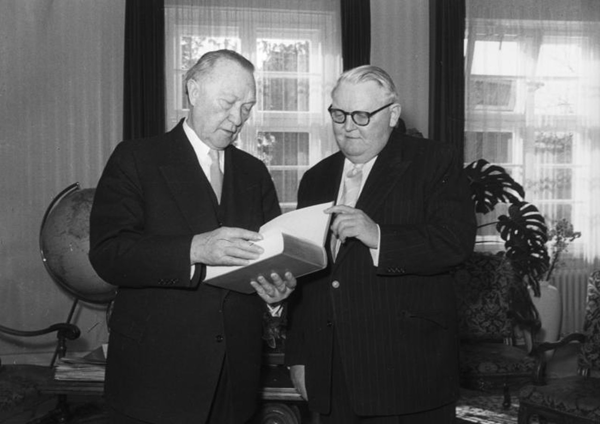
Ludwig Erhard (right) and the first Chancellor of Germany Konrad Adenauer
The main starting point in the Federal Republic of Germany for the policy of a social market economy was the monetary and economic reform of 1948, and its spiritual father is undoubtedly considered Ludwig Erhard, who, in the new post-war conditions, found a completely new way of farming, overcoming the traditional one for that period of time.Wirtschaftsordnung" ("economic order"), and which was largely responsible for its success. He was a scientist, minister of economics, and later federal chancellor, who joined the history as the father of one of the most effective economic reforms known as the “German economic miracle.”
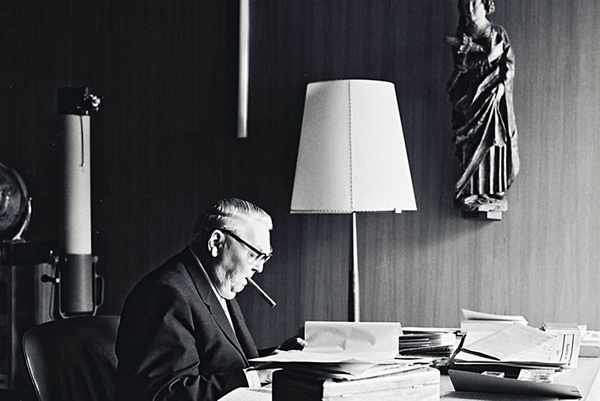
Ludwig Erhard with a cigar in his office
Ludwig Erhard
He was born in 1897 and was brought up in a Franconian bourgeois environment. Like Margaret Thatcher, who was a generation younger, Ludwig Erhard spent his childhood “over a shop”, but unlike Margaret, in his case it was a home textile store in Fürth, a trading business founded from the very beginning by his humble father. Catholic and Protestant mother, who were supporters of Eugen Richter*, Liberal MP and journalist. In Fürth, Erhard attended a secondary school that prepared children for vocational training, and took over part of his father's haberdashery trade in preparation for university after school.
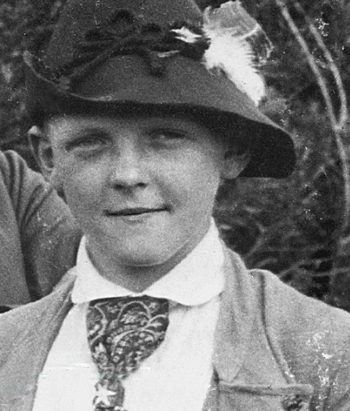
Ludwig Erhard. 1910
But the outbreak of the World War led him astray. When Erhard enlisted in the Imperial Army he was already suffering from the long-term effects of childhood polio infection, but after being seriously wounded in 1918 his health deteriorated further and he was discharged from the army, forcing him to consider a future career.
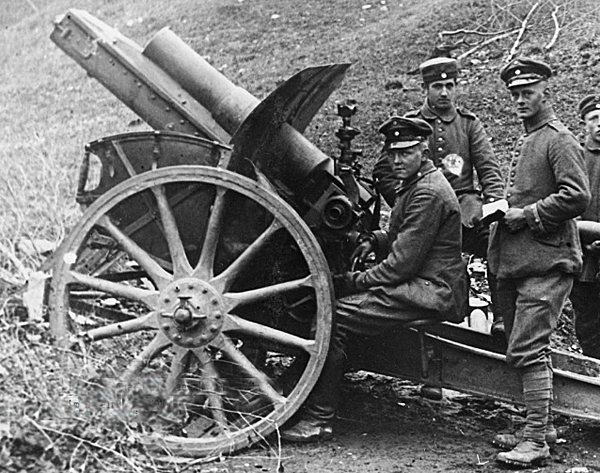
Ludwig Erhard - gunner (first on the left). 1916
Erhard, although a high school graduate, had never taken the exam (Abitur) that is usually required for admission to German universities, so he enrolled in a business studies program at a newly founded commercial college (Handelshochschule) in Nuremberg. It was there that he met economist-businessman Wilhelm Rieger*, which had a great influence on him.
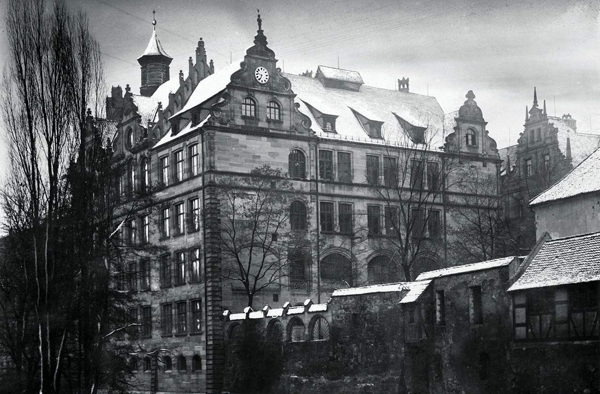
Business school (Handelshochschule) in Nuremberg, where among the 180 students is Ludwig Erhard, later Minister of Economics and second Chancellor of the Federal Republic of Germany
Note. In his diploma work, Ludwig Erhard considered the topic “the economic significance of cashless payments in transport”, and Wilhelm Rieger rated this work as “very good”, after which he was awarded a commercial diploma on March 21, 1922.
After graduating from a commercial college in 1922, Ludwig entered the University of Frankfurt, where he completed his academic studies in 1925, receiving a doctorate from the economist and sociologist Franz Oppenheimer* – an independent and comprehensive thinker who defended the fluid concept of “liberal socialism.” In 1925, he went to work as an assistant at the Nuremberg Institute for Economic Research, where he gradually began to occupy leadership positions.
Market Researcher
In addition to teaching and developing business, which Erhard did during these years at the institute, he also studied and analyzed the market for the consumer goods industry, which had deep roots in his native Franconia, and after the Nazis came to power, since the economic planning of the National Socialist government began to affect most of the economy, he also worked on structural analysis of other sectors of the economy.
Although Erhard was an opponent of the economic policies of the National Socialists, he had no visible conflicts with them, even despite his liberal views, which is not surprising, because at that time he had at least three principles in common with the economic ideology of the ruling NSDAP:
– sharply rejected the idea of class struggle;
– recognized the need for government intervention (but within very narrow limits);
– called for the subordination of the economy under the primacy of politics.
To the ground. During the Nazi regime, like millions of his contemporaries, he adopted habits of external conformity and self-preservation, and he always had to be attentive to his employers in industry and government, but there can be no doubt about his complete, albeit internal, but still distance from National Socialism. Evidence of this can be found in his report "The Economy of the New German Territory in the East" (Wirtschaft des neuen deutschen Ostraumes), created by the General Trustee Office of the East (Haupttreuhandstelle Ost), which shows that Erhard advocated good treatment of Polish workers and recommended improving the economic conditions of the Polish population.
But in 1942, due to disagreements with the Nazis, he had to leave the institute. Two reasons are given: first, he refused to join the German Labor Front (DAF)*, and the second reason is that he was involved in an intrigue within the governing body of the institute.
But be that as it may, in fact, leaving the institute was the real starting point of his career. At the invitation of the leaders of German industry, in 1943 Erhard became the head of a small research center (Institut Fur Industrieforschung), which was formed under the auspices of the "Imperial Industry Group", where the main focus was on developing the economic reform that would certainly be needed after the war ended. He could now concentrate all his efforts on promoting his idea of neoliberal reform of the German economy, which he considered his main mission.
But at the same time it cannot be considered somehow homo novus - by 1945, he was already well known in the highest circles of German industrialists, to whom he once proposed his concept of a “social market economy.”
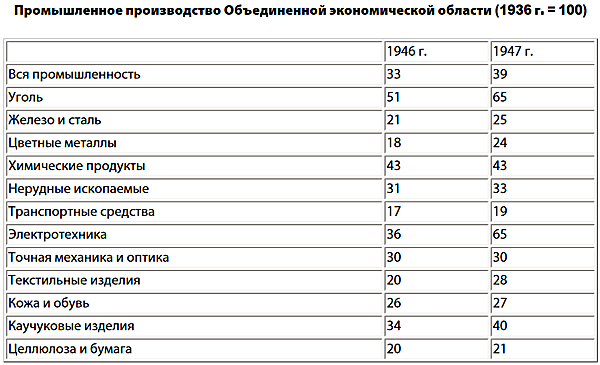
Official in the western zone of occupation
After the end of the war and the creation of an occupation zone in western Germany, among many officials, Erhard was probably the only insider on the Bavarian political and economic field who did not belong to the NSDAP or even to the Labor Front, so the Americans had practically no choice , and he was appointed Minister of Economics of Bavaria (October 1945 – December 1946).
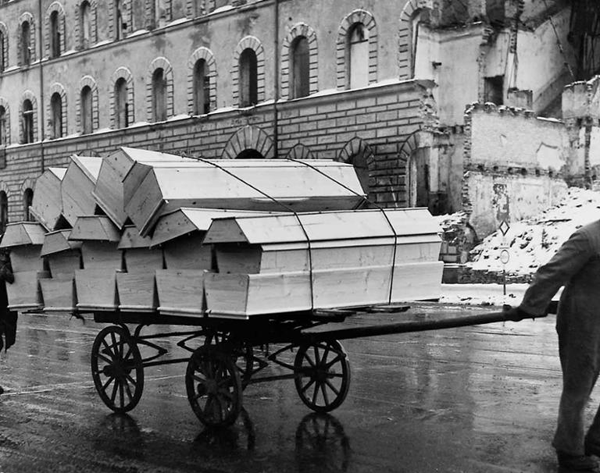
After the war, hunger reigns in Munich. Many people are getting sick and there are deaths due to the catastrophic food supply situation. Photo: A cart with empty coffins is being driven along Ludwigstrasse. State Library in the background
And after the dismissal of the director of the Bisonia Economic Directorate* Jo Hannes Semmler, because of his ridicule of the American military administration, Ludwig Erhard was appointed to the post of director (at the proposal of the CDU and FDP, despite the resistance of the SPD), who, according to the American occupation authorities, was more restrained and calm than his predecessor .
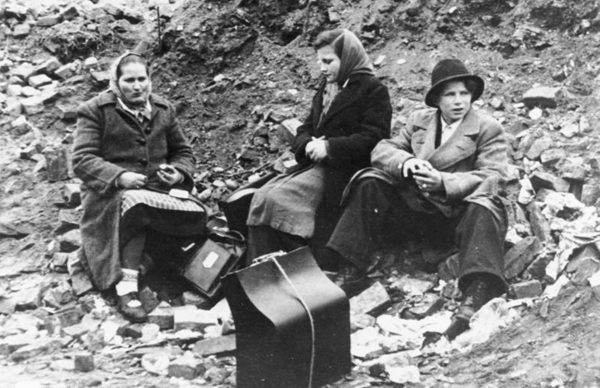
German refugees from the east in Berlin in 1945
Now Erhard had the opportunity to bring his ideas for liberalizing the German economy to life, and he did not hesitate to take this opportunity!
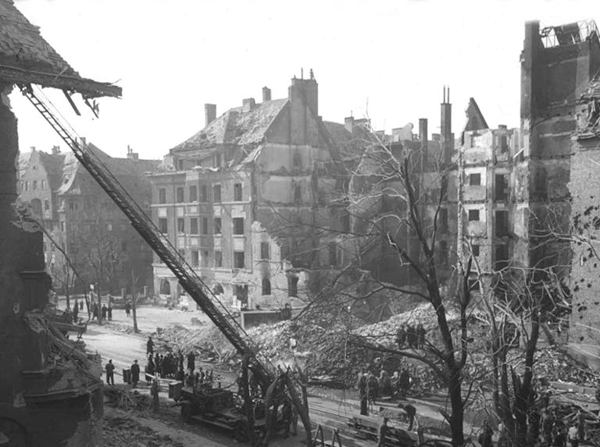
Post-war Munich in ruins and ashes
By the time Erhard came to the post of director of the Economic Directorate of Bisonia in Germany, inflation, the distribution system and state price regulation still remained in the national economy from the old regime, as a result of which discontent began to brew among the people, and in June 1948 a plan for restoring the German economy was adopted.
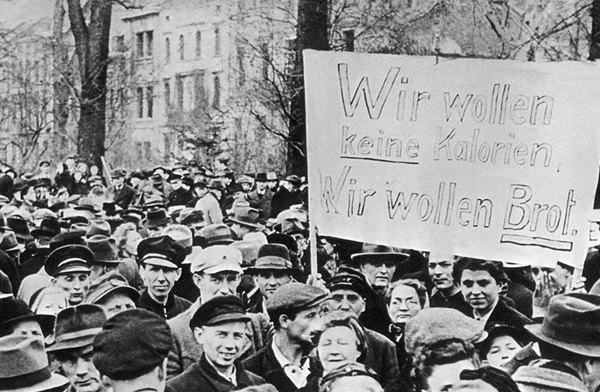
Protests against rising prices in Germany in 1948
Note. At the beginning of 1948, the German economy was in a very difficult situation. As a result of the enormous damage caused by the war, German industrial production was less than 60 percent of 1936 levels and real per capita consumption was about two-thirds of the pre-war period.
There were acute shortages of most basic consumer goods, and war financing meant that the Third Reich's national debt reached almost 400 percent of 1939 GDP by the end of the war and created a huge money supply. The Reichsmark (RM) lost its function as a medium of exchange, and barter trade became commonplace.
In addition, the black markets that emerged after the war undermined the entire system of price and wage controls, and the population had no incentive to work for money. As a result of the destruction of the Reichsmark, imported goods began to quickly disappear from regular markets, and exports became unprofitable, since foreign exchange earnings had to be exchanged for Reichsmarks.
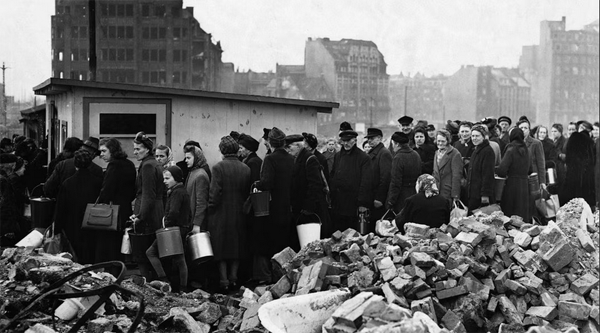
Queues for groceries in Hamburg
But Erhard showed willfulness and deviated from the developed plan - on a day off, when civil servants and curators from the military administration were not in their offices, he spoke on the radio and completely abolished state planning and price control for most goods, thereby making the market completely free!
The day after his radio speech, he had a stormy scandal with the head of the administration of the American occupation zone, General L. Clay, and when asked why he changed the orders, Erhard stated that he did not change anything, but only canceled it. Nevertheless, Clay supported Erhard's initiative.
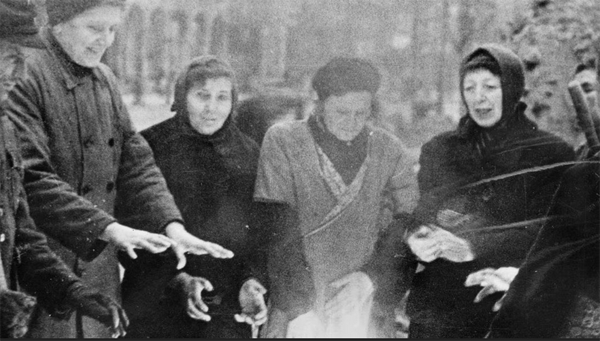
Women warm their hands, numb from work, by the fire
Monetary reform
The monetary reform carried out in Germany's western occupation zones on June 20, 1948 formed the basis of West Germany's impressive post-war recovery and is rightfully considered one of the key events in the country's early post-war economic history. Such reforms are usually preceded by measures related to the improvement of public finances and the creation of conditions for strengthening the country's economy.
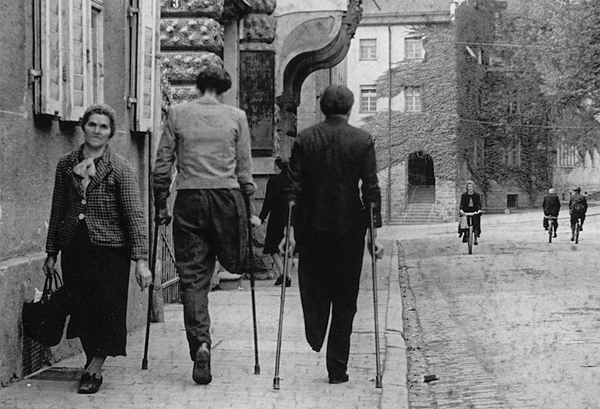
Post-war streets of Berlin
The launch of this reform was due to the active work of Ludwig Erhard, who took over the leadership of the Special Office for Money and Credit (Sonderstelle Geld und Kredit), where they prepared the monetary reform, which was initiated by the American Congress, in order to reduce the economic burden of the starving population of Germany.
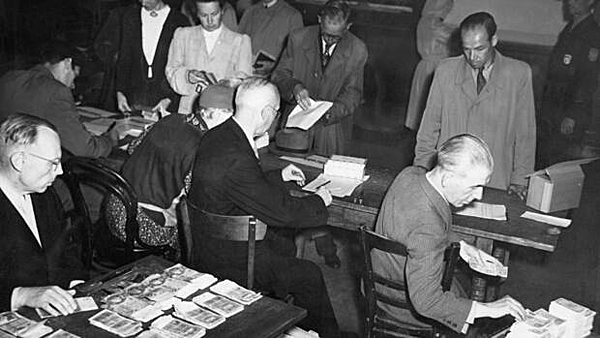
Exchange of old Reichsmarks for new German marks. Photo: dpa
Note. The new 1, 2, 5, 10, 20, 50 and 100 DM banknotes were pre-printed by two American printers, the American Bank Note Company, New York, and the Bureau of Engraving and Printing. , Washington) - and at the beginning of 1948, in 23 wooden boxes, they were delivered to Germany, where, under conditions of strict secrecy, they were stored in the old Reichsbank building in Frankfurt am Main.
The first step of the reform was to eliminate the money supply created by financing the war by simply printing paper money. The new German Mark (Deutsche Mark/DM) banknotes printed in the USA began to be put into circulation by the bank founded in March 1948 Bank Deutscher Lander (future Deutsche Bundesbank). And at this stage, the decisive point was the establishment of an exchange rate between the old Reichsmark (RM) and the new German mark (DM), which would preserve the internal and also external stability of the new currency.
On June 20, 1948, citizens began to receive 40 DM per capita, and companies and traders received 60 DM. Cash old Reichsmarks still available to the population, as well as bank deposits, were exchanged at the rate of 100 Reichsmarks for 6,5 new German marks.
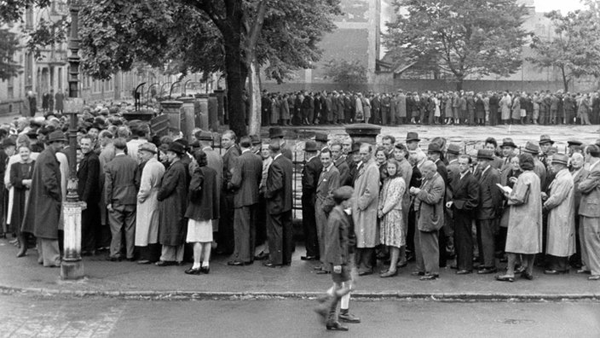
And an amazing thing happened - on June 20, store shelves suddenly filled up!
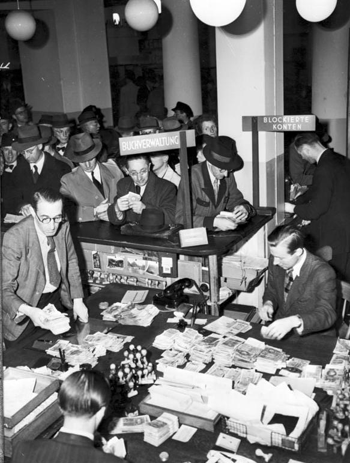
Queues for exchanging old money
As already mentioned, on June 20, 1948, the population began to receive the new currency (DM), this is exactly the day the advances were issued, and by the end of June 4,4 billion new marks were circulating in the German economy.
Note. After the monetary reform, there is a significant improvement in the food supply of the population. This is facilitated by both an increase in supplies from abroad and a higher 1948 harvest in the French occupation zone. Some products, such as vegetables and fruits, could now be freely purchased on the market, and for certain types of goods that continued to be controlled by the state for some time, prices on the black market decreased.
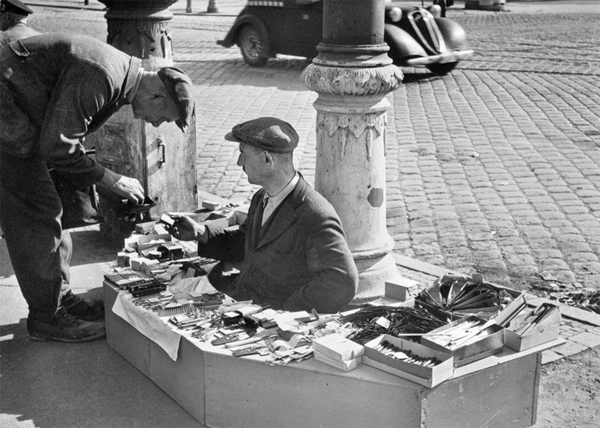
This double-leg amputee sells household goods such as scissors, brushes and matches in Frankfurt am Main to earn extra money.
As a result of this reform, all existing debts of government agencies and the National Socialist Party were canceled, and the remaining debts (private sector) still in Reichsmarks (RM) were converted into debts of German marks (DM) in a ratio of 10:1. Such regulation also applied to most financial contracts, including securities and insurance contracts.
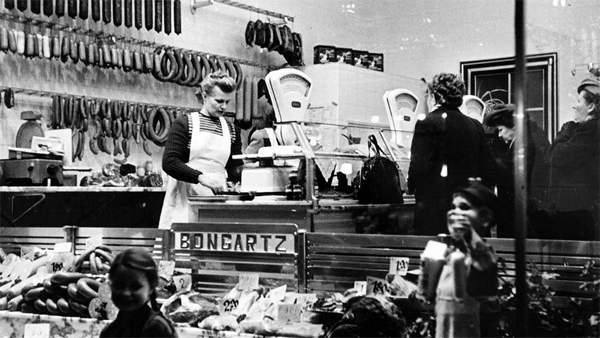
After the monetary reform, store shelves were instantly filled
Thus, the foundation for further economic success was laid immediately after the monetary reform. Production and productivity in the western occupation zones, which in 1949 became known as the Federal Republic of Germany, increased sharply after the introduction of the German mark, the partial liberation of the economy from price controls and the lifting of the wage freeze.

All these events in 1948 related to monetary reform showed that this reform was only one of the steps, albeit a very important one, on the path to further post-war economic recovery in Germany.
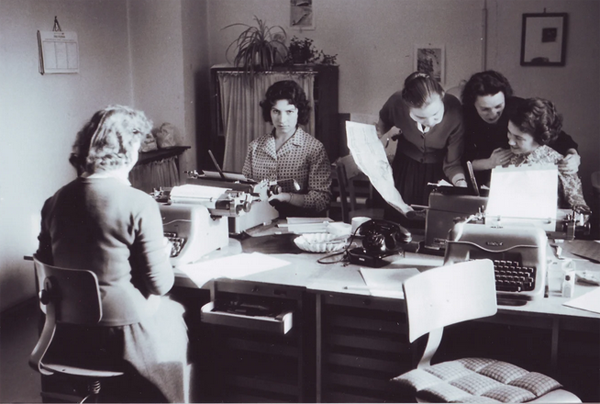
The Institute for Economic Research (Institut für Wirtschaftsforschung) was created by Erhard and Adolf Weber in 1949 to provide science-based advice to policymakers
This is how Ludwig Erhard himself characterized this difficult period before the monetary reform in his book “Welfare for All”:
economic reform may succeed. This was the time when we in Germany were making calculations, according to which there was one plate per capita every five years, a pair of shoes every twelve years, one suit every fifty years. We calculated that only one in five babies could be wrapped in their own swaddling clothes, and that only one in three Germans could hope to be buried in their own coffin.”
And here is an excerpt from the book “Economy without Miracles” (Wirtschaft ohne Wonder), written by two French economists, Jacques Rueff and Andre Pietre, who were in Germany at that time:
...This restoration began in all sectors of economic life exactly on the day of the monetary reform. Only eyewitnesses can tell about the immediate effect that the monetary reform had on the filling of warehouses and the wealth of storefronts. From day to day, stores began to be filled with goods and factories began to resume work. Just the day before, the Germans were running aimlessly around the city to look for additional pitiful food items. And the next day, their thoughts were already concentrated only on starting to produce these food products. The day before, hopelessness was written on the faces of the Germans, the next day the whole nation looked to the future with hope.”
Economic recovery
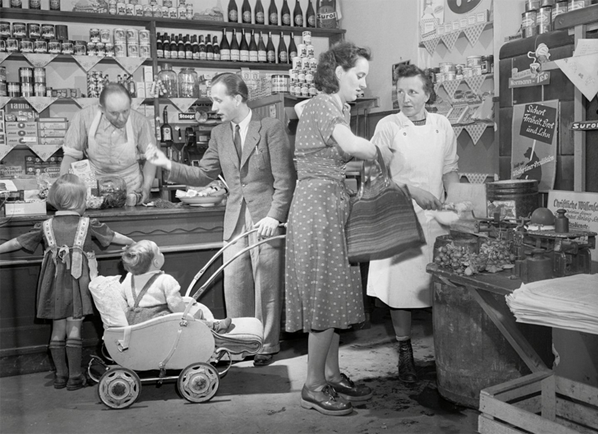
Immediately after the reform, store shelves become full
The post-war economic recovery could not be achieved without the restoration of German capital and increased labor force participation in the labor market. Through his reforms, Erhard cut taxes on both personal income and corporate profits, which greatly stimulated savings and investment as the government allowed households and workers to keep more of their earnings. Erhard knew that maintaining high taxes in the midst of a severe economic downturn would inhibit economic growth, and the arrival of German refugees from Eastern Europe and Marshall Plan revenues also helped increase investment and labor in the labor market.
Thus, tax cuts were an important factor in the German economic miracle.
Note. The impact of the Marshall Plan on Germany's economic miracle is still controversial. On the one hand, public opinion and traditional German economic history claim that the Marshall Plan ushered in Germany's incredible post-war recovery. On the other hand, another school of German economic historians argues that the post-war reconstruction of Germany, as well as all of Europe, was largely independent of the Marshall Plan.
The Marshall Plan provided Germany with just over three billion dollars in cash loans, industrial equipment, and technology over four years. And although this plan, according to some economists, was not the main force behind the post-war reconstruction of Germany, it made it possible to realize what would later be called the “German economic miracle.” Within a few years of the “plan”, production of both agricultural and industrial products will exceed the pre-war level. It was later calculated that the incoming funds in Germany were used extremely effectively, the return on each dollar used was from 10 to 20 dollars!
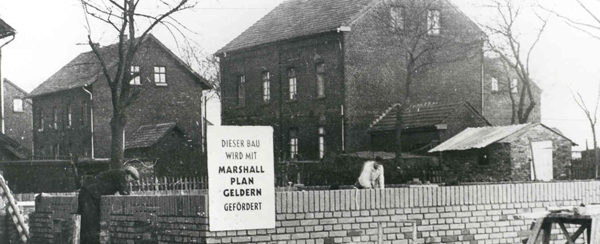
Reconstruction of post-war Germany under the Marshall Plan
After the 1948 reform, industrial and agricultural production continued to grow by leaps and bounds, and, fast forward, by 1958 industrial production was more than four times the annual level in the six months of 1948 preceding the monetary reform.
Work in the German government
In May 1949, the Christian Democratic Union (CDU), together with its Bavarian ally, the Christian Social Union (CSU), won parliamentary elections. Konrad Adenauer became the first post-war Federal Chancellor, and Erhard became Minister of Economics in his government. Work began to implement the theory of the social market economy.
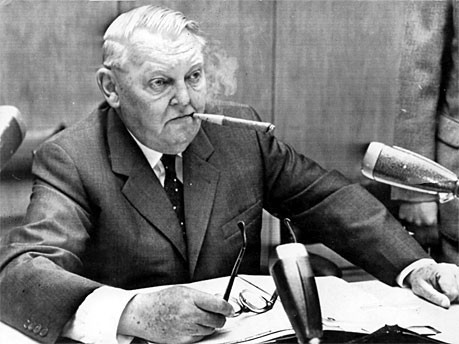
Ludwig Erhard
Note. Although Erhard was a Protestant from Franconia, he understood perfectly well that his plans could only be realized with the Adenauer Party (CDU), since another major political force - the Social Democratic Party - persistently advocated a planned economy, nationalization of industry and tough
government regulation.
The specificity of the West German boom after 1948 was based on high domestic investment in all sectors of the economy, all combined with large exports of manufactured products. It should be emphasized here that among the developed capitalist countries only Canada, Japan and Norway at that time could boast of a higher level of investment.
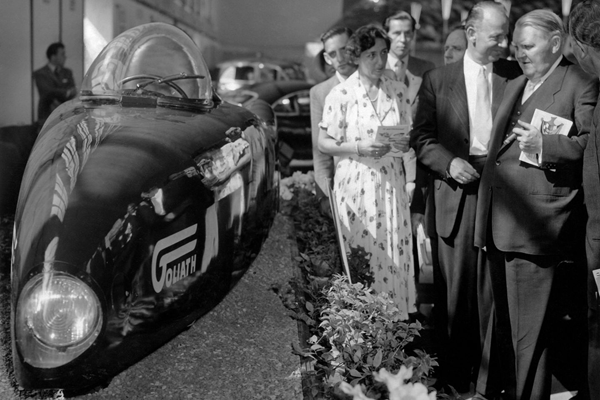
Berlin Motor Show 1951. Federal Minister of Economics Ludwig Erhard admires the three-wheeled Goliath record-breaking vehicle
The Korean War (1950–1953), during which the US government placed its military orders in Germany, played a fairly significant role in the growth of the German economy. The demands of the Korean War led to global shortages of numerous goods, which helped many countries overcome lingering mistrust and resistance to purchasing West German products. At the time, West Germany had a large pool of skilled labor, partly as a result of deportations and migrations of Germans from the eastern territories, which helped West Germany more than double the value of its exports during and shortly after the end of the war.

Structure of the gross national product for 1950–1960
The West German economy continued to grow by leaps and bounds. The number of orders received by industry in the first half of 1954 exceeded their number in the first half of 1953 by 23,6%, in the field of procurement of raw materials - by 33,3%, and in the production of means of production - by 27,8%, while in the production of consumer goods, an increase of only 6,6% could be observed.
Already in the second half of 1954, the German economy approached almost full employment - the number of unemployed for the first time was less than one million, and in 1955 the unemployed were already slightly less than 500 thousand people, and this ceased to be an economic problem for the government.
Well, by 1956, Germany paid off all its debts and became a creditor...
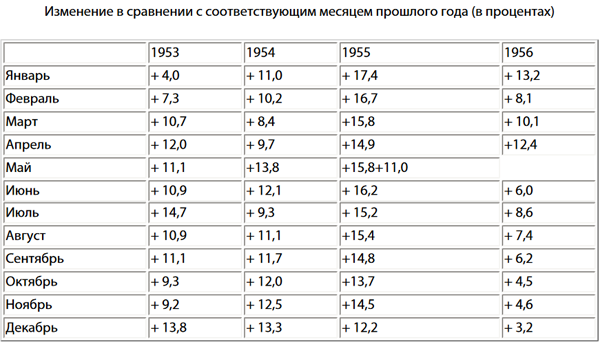
At the head of the government
In April 1963, contrary to the will and vote of Adenauer, the CDU/CSU faction in the Bundestag nominated Ludwig Erhard as a candidate for the post of chancellor, and on October 16, Erhard was elected chancellor with 279 votes against 180 in the Bundestag, in addition, he was chairman of the Christian Democratic Union, even despite the fact that he was never a member of this party and despite pressure from Chancellor Adenauer. The reasons for Erhard's reluctance to join the party are unknown, but it is likely that they arose from Erhard's general skepticism of party politics, however, almost everyone in Germany at the time, including the vast majority of the CDU itself, considered Erhard to be a long-time member of the CDU and chairman of the party.
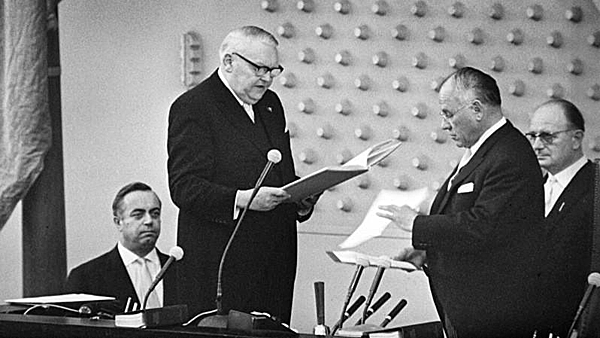
The swearing-in ceremony of Federal Chancellor Ludwig Erhard in the Bundestag, on the right in the photo is the President of the Bundestag Eugen Gerstenmaier
After Adenauer's resignation in 1963 and with the election of a new Federal Chancellor in the fall of 1963—a step that Adenauer repeatedly postponed—many observers felt that the young Federal Republic had passed a very important test and had reached a major milestone of stability.
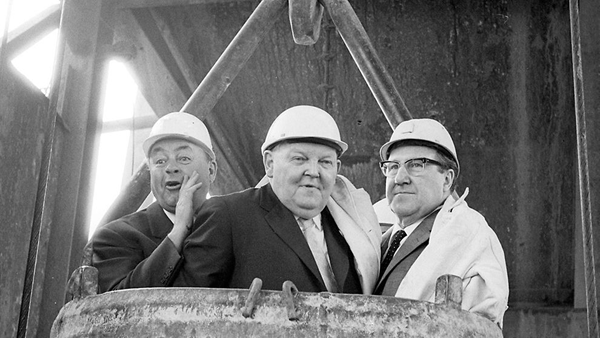
Ludwig Erhard at an industrial site
Although Ludwig Erhard did not hold office for long, a number of important achievements can be attributed to his administration.
In foreign and internal German policy, they included agreements on a pass on the border with the GDR after the construction of the Berlin Wall, the opening of West German trade missions in a number of countries in Eastern Europe, the establishment of diplomatic relations with Israel and finally the “Peace Memorandum”* from March 1966 (“a united Europe from the Atlantic to the Urals”), which emphasized opportunities for rapprochement with the countries of Eastern Europe.
In Erhard's domestic policy area, economic advances included further privatization of federally owned enterprises, increased opportunities for employee accumulation through savings, and shared ownership mechanisms.
There have been notable trials of Nazi war criminals in the Federal Republic, as well as controversy over the length of time within which legal redress for related crimes can be sought.
During Erhard's tenure as Federal Chancellor, important discussions took place on reforming the laws governing public finances and emergency powers, and on the adoption of a future law on promoting stability and growth (Stabilitätsgesetz), on reforming the welfare state and on the formation of a more flexible Eastern policy.
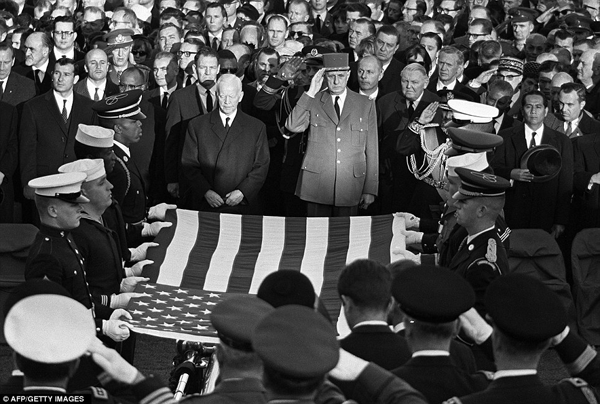
Honorary mourners from left: German President Heinrich Lübcke, French President General Charles de Gaulle, German Chancellor Ludwig Erhard and French Prime Minister Maurice Couve de Murville pay their respects
On foreign policy issues, Erhard was more oriented toward an alliance with the United States than toward a partnership with French President de Gaulle...
Thoughts on buying the GDR
Latest research from a German journal Der Spiegel*, who gained access to previously unknown documents of correspondence between the CIA and the American State Department, show how close the moment of German unification was back in 1963. It was then, almost immediately after his election, who became the second Chancellor of the Federal Republic of Germany after K. Adenauer, that Ludwig Erhard began to test the waters in a conversation with US President Lyndon Johnson about the possibility of negotiations on the future of the GDR with the then leader of the USSR N. S. Khrushchev.
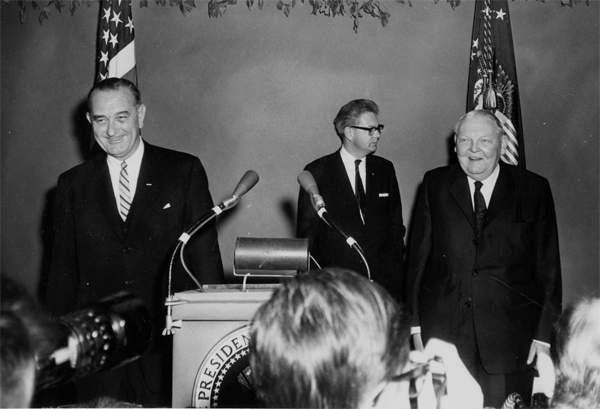
US President Lyndon Johnson and Federal Chancellor Ludwig Erhard
In Erhard's opinion, the Soviet economy needed money, and the leadership of the USSR would willingly accept such an offer. In the 1960s, the Soviet Union had to buy millions of tons of grain from the GDR to keep its economy afloat, and the amount of $25 billion offered by the West German government for the cession of territory to East Germany was comparable to a quarter of the entire GDP of the GDR for ten years!
Erhard hoped that the Soviet leadership would take such a large (at that time) sum and agree to his proposal, and the Germans wanted to involve the United States as a mediator in this deal, with which, in the person of President Lyndon Johnson, they held secret negotiations on this issue.
In fact, the technical part of the negotiations on behalf of the two heads of government was conducted between the head of the department of the Federal Chancellor, Ludger Westrick (Ludger Westrick) and US Ambassador to West Germany George McGee (George McGhee). However, in the end, the United States did not accept this proposal, and plans for German unification collapsed before any decision could be made.
There is very little documentation of this plan in the German national archives. This may partly be the result of the fact that the conservative Christian Democrat Ludwig Erhard avoided expressing his intentions to other politicians and officials. The only person he mentioned this to was Willy Brandt of the center-left Social Democratic Party. In an interview with Der Spiegel magazine published in 1984, Brandt recalled an episode during his time as mayor of Berlin when Erhard asked him during a car ride how much "in fact, it will cost Russia to cede the GDR to us"?
The archival documents also say that Erhard said that he was considering the possibility of supplying German industrial plants and equipment for the development of Siberia, and in exchange for this, Soviet leader N. S. Khrushchev was to carry out a phased program including “the destruction of the Berlin Wall, self-determination and further German reunification."
The next meeting between L. Erhard and L. Johnson in the White House took place in 1964, during the US election campaign, and the issue of German reunification was no longer discussed.
In addition, by this time the circumstances had changed greatly - Khrushchev was removed from power, and the British, French, Italians and Japanese began to provide cheap loans to the Soviet Union.
Resignation
American The New York Times on November 3, 1966, reported that Federal Chancellor Ludwig Erhard said he might resign if it would help resolve the political crisis in West Germany.
It all started with the fact that on October 26, 1966, the Minister of Economic Development Walter Scheel of the FDP resigned in protest against the budget published the day before. Other ministers of the Free Democratic Party of Germany (FDP) followed his example - the coalition collapsed, and Erhard ruled for some time with a minority government, after which he resigned from the post of Federal Chancellor in November 1966, having achieved much less in this position success than as the “father of the economic miracle.” His successor in this post was Kurt Georg Kiesinger (CDU), who formed a grand coalition with the SPD.
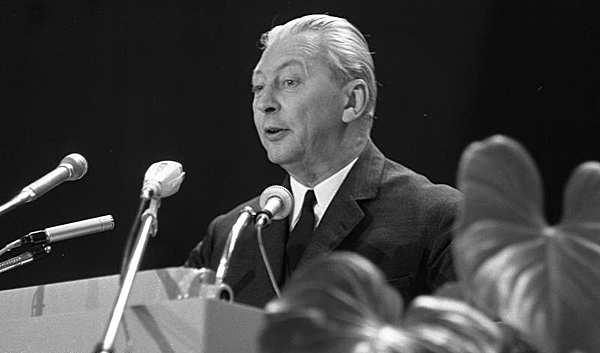
Third Federal Chancellor of Germany Kurt Georg Kiesinger
After serving as Federal Chancellor, Ludwig Erhard remained a member of the German Bundestag for another eleven years. In 1967 he founded the Ludwig Erhard Foundation* (Ludwig-Erhard-Stiftung e.V.) to introduce its principles into the economy and society on an ongoing basis.
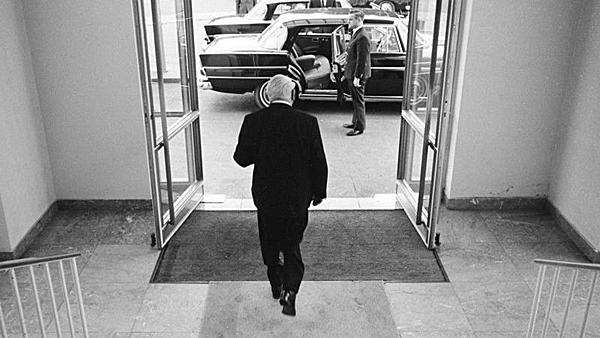
Ludwig Erhard leaves the Schaumburg Palace in Bonn after his resignation as Federal Chancellor on December 1, 1966
In February 1977, on his 80th birthday, Ludwig Erhard was awarded a number of awards as the “father of the German economic miracle.”
Death and burial place
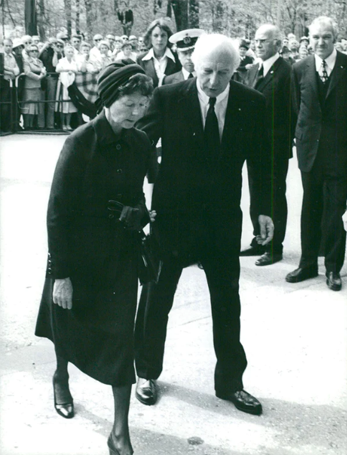
Funeral of Ludwig Erhard. Elisabeth Klotz, daughter of Ludwig Erhard
Ludwig Erhard died in Bonn on May 5, 1977, from heart failure, while still a member of the Bundestag and continuing his political activities. And after a state funeral on May 11, 1977 in the plenary hall of the German Bundestag, he was buried on May 12 in the mountain cemetery in Gmund on Tegernsee (Gmund am Tegernsee) in Upper Bavaria. Vocational colleges in Paderborn, Fürth and Münster are named after him.

Burial place of Ludwig Erhard in the mountain cemetery in Gmund am Tegernsee (Gmund am Tegernsee)
Heritage
Ludwig Erhard's economic reforms led to astonishing economic growth and revival in post-war Germany. Between 1948 and 1958, industrial production grew by an average of 15 percent per year, and in the second half of 1948 alone, after the currency reform, this production grew by a staggering 50 percent! The growth was so great that by the end of the decade the unemployment rate had dropped to 1 percent!
Erhard understood that sustainable economic growth could only be achieved through increased productivity.
Thus, capital accumulation through increased household savings and investment was important in the country's post-war recovery, and low taxes and curbed inflation further contributed to economic success.
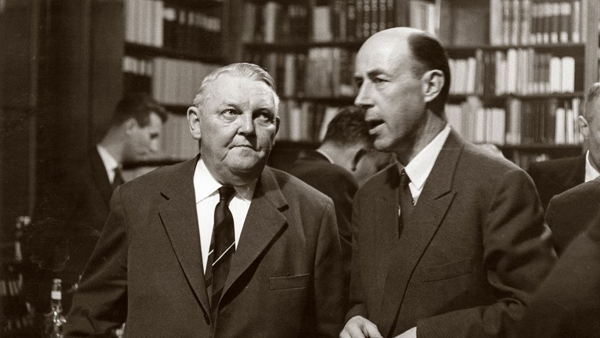
Visit to Frankfurt University
"Prosperity for all"Wohlstand für alle") was the main goal of Erhard's economic policy, and his main concept - a social market economy - sought to combine, on the basis of free competition, a strong macroeconomic structure and especially stable prices, the ideal of personal freedom of citizens with growing prosperity, social security and a policy of complete openness in relation to the surrounding world.
Today's competitive German economy is the legacy of Erhard's economic policies, and his free market reforms transformed western Germany from a war-torn country into the economic center of all of Europe and a world leader in industrial exports, leading to rapid improvements in living conditions and the emergence of a consumer society since the late 1950s.
Erhard's economic policies, now known as "social market economics," were based on free market principles and emphasized competition, private enterprise, and individual responsibility. He believed that government intervention in the economy should be as limited as possible and that prices should be determined by the market rather than government control.
During his time as chancellor, Erhard oversaw a number of important reforms, including the introduction of Germany's first comprehensive social security system (particularly in the area of social security - housing benefit was introduced in 1965), building a welfare state and modernizing the country's infrastructure.
But in domestic politics, Erhard found it difficult to establish his authority, since his predecessor K. Adenauer constantly criticized him from behind. Ironically, it was the political crisis of the mid-1960s, as well as growing differences with his junior coalition partner, the Free Democratic Party of Germany (FDP), that led to his resignation in 1966.
Erhard went down in German history as the man who, acting alone against everyone - both against his own officials and against officials of the occupation administration, with just one radio speech on Sunday 1948, put an end to controls on the production of industrial goods and prices. With his reforms, he gave people who were defeated, impoverished and at the very bottom, the opportunity to show their strength and achieve prosperity again!
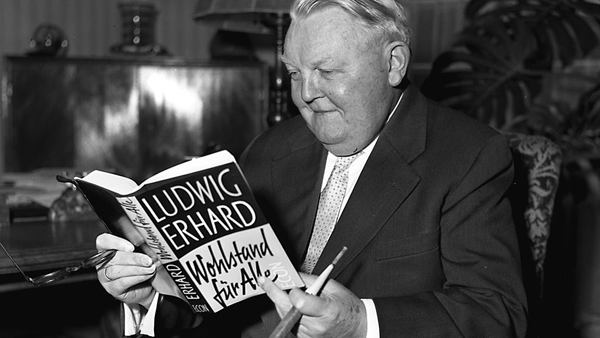
Erhard with his memoirs "Welfare for All"
Above all, however, modern Germans should thank him for his extraordinary achievements, which they benefit from today and may continue to benefit from tomorrow. And now, looking back, it is absolutely clear that from the point of view of economic policy, Ludwig Erhard was a man who shaped history in difficult years for the country, like its first chancellor Konrad Adenauer...
Information
*GDP (GDP). Gross Domestic Product, an economic indicator that measures the total value of all goods and services produced in a country in a year. It is a key indicator for the economy of any country. When calculating GDP, production must be located within the country; moreover, if a citizen does business in another country, the goods and services produced by him do not increase domestic GDP and are therefore not taken into account in it. The GDP indicator is needed to determine whether the state’s economy is working well, for example, if GDP is growing, then the country is developing.
*Eugen Richter (1838–1906). A well-known politician and journalist in the German Empire and one of the leading supporters of liberalism in the Prussian Landtag and the German Reichstag. Richter was one of the serious critics of Otto von Bismarck's policies and actively opposed his anti-socialist laws of 1878, which banned the Social Democratic Party. As soon as Richter began to give a speech in the Reichstag, Bismarck, who could not stand his liberal ideas, usually left the meeting. For a long time he was editor-in-chief of the liberal newspaper Freisinnige Zeitung.
*Wilhelm Rieger (1878–1971). German economist, teacher, and then professor at the Nuremberg Commercial College (Handelshochschule). Successfully defended his dissertation “Reasons for the transition to gold currency in Germany” at the University of Strasbourg. Author of the work “Introduction to Private Business Research.”
*Franz Oppenheimer (1864–1943). German economist and sociologist of Jewish origin. Author of economic works on the sociology of the state and the theory of its origin. Developer of the project for the agricultural cooperative Jewish colonization of Palestine (kibbutzim). In 1933, after Hitler came to power in Germany, he emigrated and lectured at universities in France and Eretz Israel. The basic idea of his teaching was that economic freedom, embodied in free market relations, is entirely compatible with permanent equality of opportunity for all. Author of the book “The State: Its History and Development.”
*German Labor Front (Deutsche Arbeitsfront/DAF). During the reign of the National Socialists in Germany, a united trade union of workers and employers, which replaced the independent trade unions of Germany. DAF defined itself as "an organization of creative Germans with brains and fists." DAF also administered various programs such as medical care, vocational training, legal assistance, and subsidized the construction of the Volkswagen automobile plant.
*Bisonia (English Bizonia). Western part of occupied Germany, after World War II. The governing bodies of Bisonia were the administrative council of the economy and bizonal administrative departments. Bisonia's form of government is a military administration under the leadership of Lucius Clay (USA) and Brian Hubert Robertson (UK). After France annexed Bisonia into its zone of occupation (8 April 1949), it became Trizonia, from which the Federal Republic of Germany was formed in the same year.
*Peace memorandum. In 1966, the French government published a memorandum on France's withdrawal from the NATO military organization. De Gaulle considered the confrontation between NATO and the Warsaw Pact a serious mistake and proposed creating “a united Europe from the Atlantic to the Urals.” In that situation, this was a completely unrealizable proposal, but it served as a signal for some warming of the political climate. For the NATO organization in those conditions when the United States was bogged down for a long time in the war in Vietnam, the decision of the French president was a heavy blow.
*Der Spiegel. "Unfinished deal." An article in the German magazine Der Spiegel dated 04.10.2011/XNUMX/XNUMX about plans to buy back the GDR from the Soviet Union.
*Ludwig Erhard Foundation (Ludwig-Erhard-Stiftung e.V.). A public organization founded in Bonn in 1967 by West German Chancellor Ludwig Erhard, after his resignation, to further develop and strengthen the social market economy. The foundation's charter states that its mission is to promote "the principles of freedom in politics and economics through civic education both within and outside Germany, as well as scientific work in the subject areas of economics and regulatory policy." Foundation website: ludwig-erhard.de.
References:
1. L. Erhard “Welfare for all.”
2. V.V. Antropov: “Social market economy: the way of Germany.”
3. A. Smirnov: “Ludwig Erhard. The Renaissance of Germany and the German Economic Miracle."
4. P. Pysh: “The concept of social market economy of Ludwig Erhard in economic theory and practice in Germany.”
5. Otto Schlecht: “Grundlagen und Perspektiven der sozialen Marktwirtschaft.”
6. Volkhard Laitenberger: "Ludwig Erhard".
7. Alan Milward: "Tneeconomic policy of Ludwig Erhard."
8. Meinhard Knoche: "Ludwig Erhard and the ifo Institute: In the Service of German Reconstruction."
Information